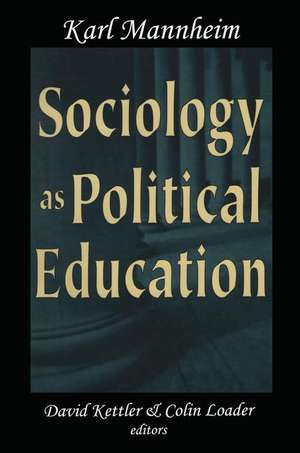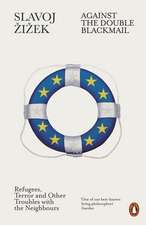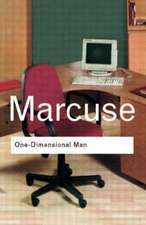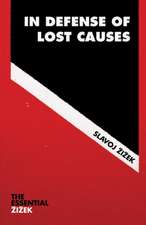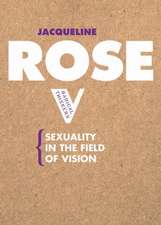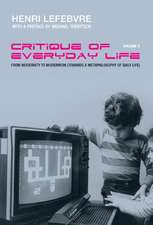Sociology as Political Education: Karl Mannheim in the University
Autor Karl Mannheimen Limba Engleză Paperback – 16 apr 2018
The comparatively new discipline of sociology was looked upon with favor by the Weimar Republic's reformers of higher education. In advancing its methods Mannheim had first to contend first with prominent and influential figures who attacked sociology as a mere political device to undermine cultural and national values for the sake of narrow interests and partisanship. He then had to meet the objections of fellow sociologists who were convinced that the discipline could prosper only as an area of specialized study with no claim to educational goals beyond the technical reproduction. Finally, he had to separate himself from proponents of politicized sociology. Sociological thought should be rigorous, critical, and attentive to evidence, but, Mannheim argued, its system had to be open and congruent with the ultimate responsibility of human beings for their acts.
Loader and Kettler supplement Mannheim's groundbreaking volume with previously untranslated Mannheim texts, among them a transcript of his 1930 sociology course in which Mannheim answered his critics and clarified his intentions. Sociology as Political Education is not only of historical significance, but also shows Mannheim's relevance for current discussions of academic integrity and politicization. This volume will be of interest to sociologists, cultural historians, and political scientists.
| Toate formatele și edițiile | Preț | Express |
|---|---|---|
| Paperback (1) | 381.57 lei 6-8 săpt. | |
| Taylor & Francis – 16 apr 2018 | 381.57 lei 6-8 săpt. | |
| Hardback (1) | 980.78 lei 6-8 săpt. | |
| Taylor & Francis – 31 mai 2001 | 980.78 lei 6-8 săpt. |
Preț: 381.57 lei
Nou
Puncte Express: 572
Preț estimativ în valută:
73.02€ • 75.85$ • 60.66£
73.02€ • 75.85$ • 60.66£
Carte tipărită la comandă
Livrare economică 03-17 februarie 25
Preluare comenzi: 021 569.72.76
Specificații
ISBN-13: 9781138514850
ISBN-10: 1138514853
Pagini: 222
Dimensiuni: 152 x 229 x 15 mm
Greutate: 0.45 kg
Ediția:1Adnotată
Editura: Taylor & Francis
Colecția Routledge
Locul publicării:Oxford, United Kingdom
ISBN-10: 1138514853
Pagini: 222
Dimensiuni: 152 x 229 x 15 mm
Greutate: 0.45 kg
Ediția:1Adnotată
Editura: Taylor & Francis
Colecția Routledge
Locul publicării:Oxford, United Kingdom
Cuprins
Preface, Introduction, 1. An Introduction to Sociology, 2. Heidelberg Letters: Soul and Culture in Germany, 3 Science and Youth, 4 On the Incorporation of Research in the Journalistic Medium (Zeitungswesen) into University Science, 5 The Intellectualism Dispute, 6 On Religious Experience and Rationalization, 7 On the Historical Character of Concepts, 8 The Contemporary Tasks of Sociology: Cultivation and the Curriculum, 9 The Spiritual Crisis in the Light of Sociology, 10 In Defense of Functional Reason, Notes, Index
Descriere
The Widening Circle of Genocide, the third volume of an award-winning series, combines an encyclopedic summary of knowledge of the subject with annotated citations of literature in each field of study. It includes contributions by R.J. Rummel, Leonard Glick, Vahakn Dadrian, Rosanne Klass, Martin Van Bruinessen, James Dunn, Gabrielle Tyrnauer, Robert Krell, George Kent, Samuel Totten, and a foreword by Irving Louis Horowitz.This volume presents scholarship on a variety of topics, including: Germany's records of the Armenian genocide; little-known cases of contemporary genocide in Afghanistan, East Timor, and of the Kurds; a provocative new interpretation of the psychic scarring of Holocaust survivors; and nongovernmental organizations that have undertaken the beginnings of scholarship on the worldwide problems of genocide. The Widening Circle of Genocide embodies reverence for human life; its goal is the search for new means to prevent genocide.This work is distinguished by its excellence, originality, and depth of its scholarship. The first volume was selected by the American Library Association for its list of "Outstanding Academic Books of 1988-89." It is both compelling reading and an invaluable tool for scholars and students who wish to pursue specific fields of study of genocide. It will also be of interest to political scientists, historians, psychologists, and religion scholars.
